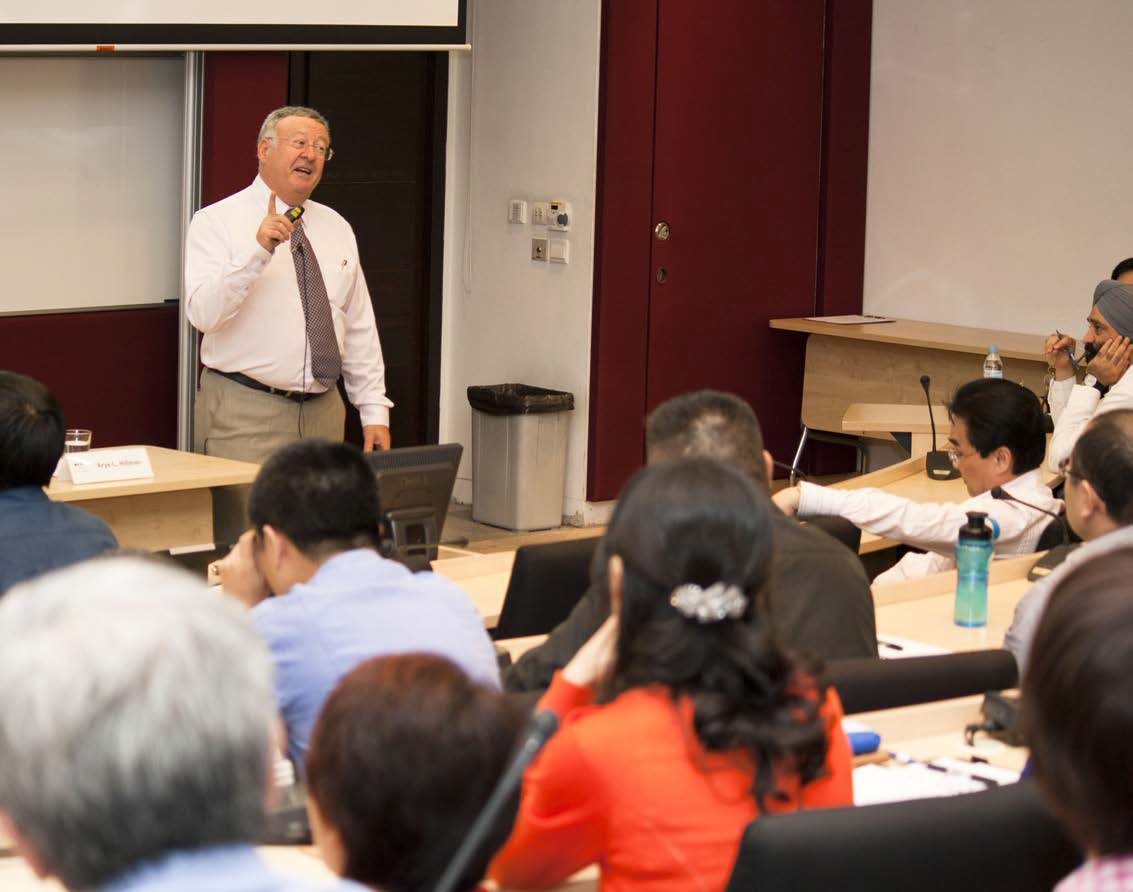Majority rules, but adverse social consequences can result when expressive behaviour dictate voting, resulting in unwanted public policies, says Arye L. Hillman.
Professor Arye L. Hillman, the William Gittes Chair of the Department of Economics at Bar-Ilan University, gave a public lecture in August entitled “Expressive Behaviour and Public Policy” at the School of Public Policy, to highlight the rationale behind the need for public policy: efficiency, social justice or income distribution, and macroeconomic concerns. Prof Chen Kang of the LKY School chaired the lecture.
He emphasised that his lecture should not be viewed as arguments against democracy. Despite what failings one may find with it, including those he flagged, democracy remains a more ideal operative system of government than centralised planning, he argued. Voting offers individuals a choice on what they prefer relative to alternative sets of other available options. Subsequently, the need for public accountability ensures that what individuals vote for collectively is implemented. The fundamentals to this lie with the Condorcet’s Jury theorem that says (simply), when voters know the ‘better’ policy with a greater than 50 percent probability, it is always better to have more, rather than fewer, voters. A group is a better truth-tracker than an individual.
However, voting does not necessarily lead to the most efficient outcomes. Drawing on numerical examples from his book, he demonstrates how it may be possible for the market mechanism to deliver a more socially efficient outcome. Furthermore, majority rule implies that it could be possible for a large section of society to vote for its own benefit at the expense of the minority.

Hillman then points out another problem of voting—expressive behaviour. Expressive behaviour is “the self-interested quest for utility through acts and declarations that confirm a person’s identity”. Examples of identity include a green-peace activist or a feminist. The costs of taking on a particular identity can be very low, and it is possible for one to behave differently from what he/she would like to see himself/herself as, when his/her actual welfare is affected.
Expressive behaviour can take on many forms, but Hillman focused particularly on expressive voting. When vote choices are tempered by expressive behaviour, this leads to what he terms as an ‘expressive policy trap’. Typically, a voter might believe that his vote is not decisive in determining policy outcomes and therefore has little bearing on his individual material wellbeing.
When faced with a ‘feel good’ but socially inefficient choice among a plethora of alternatives, voters would choose the ‘feel good’ policy to generate “expressive utility”. It is therefore possible to have majority support for a bad policy that is personally harmful when implemented. Examples of such policies include unconditional welfare support, and a tolerance towards extremist behaviour, e.g. terrorists. Subsequently, society becomes worse off because it was in each individual’s personal interest to veto such policies.
Yet, this could have been avoided simply if every voter had vetoed the policy by not exhibiting expressive behaviour.
Expressive voting is an example about how individuals’ expressive behaviour can affect others. Expressive rhetoric is another such example. Expressive rhetoric in the media and by expressive political decision-makers, can be socially inappropriate and costly.
Can expressive policy traps be avoided? Unlike ‘conventional’ externalities such as pollution where governments can impose laws or other forms of control, there are no such means to curbing one’s behaviour. Conventional methods we are often used to are not applicable in this case.
However, Hillman explains that expressive behaviour is often curbed when faced by salient events. Simple acts such as informing that the individual is being expressive is likely sufficient to refrain one from going further. In essence, policy traps can be mitigated if people support policies they would implement.
Kwan Chang Yee is a Research Fellow at the LKY School, and can be reached at sppkcy@nus.edu.sg